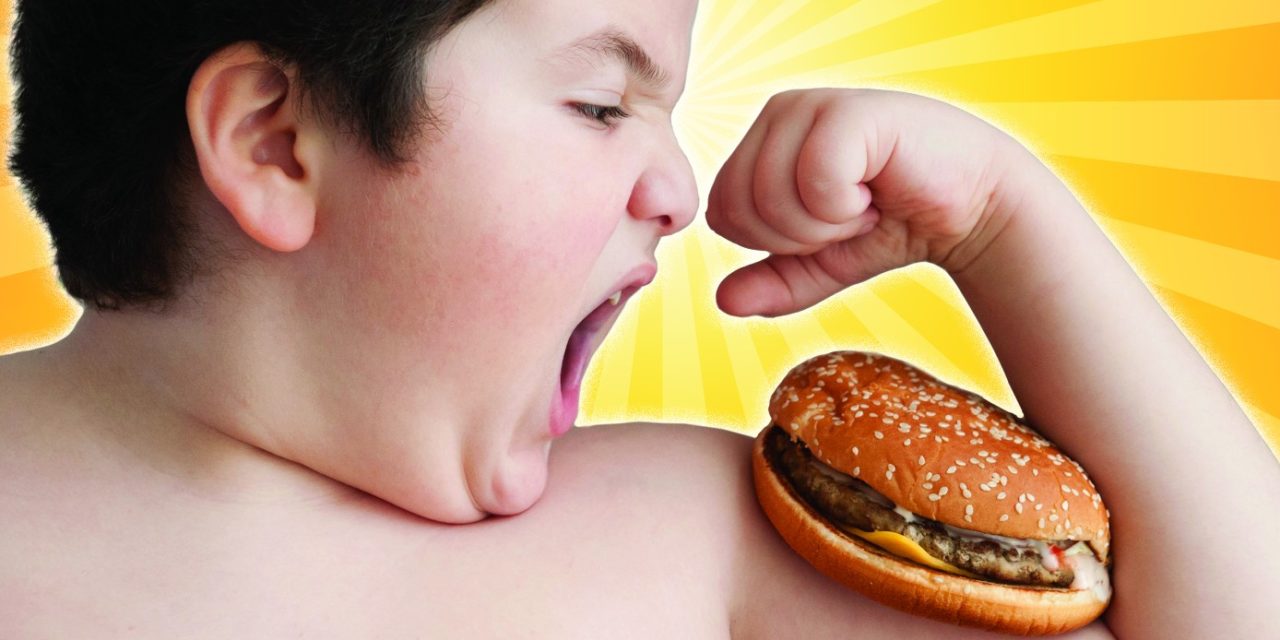by Mable Buchanan
Action for Healthy Kids.
Fuel Up to Play 60.
The Highmark Foundation.
Let’s Move.
While these programs go by many different names, they share one goal: putting an end to childhood obesity.
The Centers for Disease Control (CDC) reports that in 2015, 11.5 percent of Maryland youth in grades nine through 12 were obese and 29 percent of Maryland’s adults were obese.
Habits like a sedentary lifestyle, too little sleep and lack of exercise, compounded by the greater accessibility of unhealthy, inexpensive foods and lack of access to preventative healthcare contribute to childhood obesity. The CDC considers obesity to be a serious public health concern, especially where it concerns kids.
Tina Antkowiak, fitness director at the Y in Central Maryland, said the solution can begin at home.
“To set kids up for success in living a healthy lifestyle later in life,” she says, “parents need to be role models for their children, get outdoors and be more active with your kids, play sports, go swimming, go hiking, go biking—move and have fun doing so.”
Antkowiak recommends encouraging kids to engage in muscle-building activities, like climbing, jumping, tumbling, gymnastics, or carefully supervised strength training, to fight the battle of the bulge. She also notes it is important to get kids involved in activities as a community.
September is National Childhood Obesity Awareness Month. By raising awareness about childhood obesity and offering solutions to the problem, folks hope to prevent more youths from suffering from health issues like Type 2 diabetes, high blood pressure, heart disease, and stroke – all diseases that can result from obesity.
Antkowiak puts the goal to fight childhood obesity at the forefront of her own career; she teaches and supervises youth programs at the YMCA like lacrosse, basketball, soccer, and hockey. She has also introduced programs like Kids’ Yoga, Zumba Kids, and Toddler Time, to keep a wider audience of children engaged.
As important as exercise is, it’s only half the battle. Good nutrition is equally as important to maintaining good health.
The United States Department of Agriculture is making the job of understanding healthy eating choices a little easier with Choose My Plate, a USDA resource that offers information on sound nutrition, healthy cooking, and exercise. The site also tracks information about nutrition and fitness. (ChooseMyPlate.gov)
And Carroll County Public Schools is making an effort to continue the healthy eating conversation. The Food Services Department provides nutrition information on menu items online (visit Food Services at carrollk12.org), and they also publish a weekly healthy eating newsletter to engage students and their families. Furthermore, initiatives like Maryland Homegrown Lunch Week and the Jane Lawton Maryland Farm to School Network aim to connect Maryland’s, and specifically Carroll County’s, agricultural community with public school students’ education and health.
Research shows that children who are obese are more likely to face emotional and social problems than their peers, as well as bullying and more quiet inherent bias which, even if unspoken, is harmful to kids’ social development and self-confidence.
According to a recent article by WJZ Baltimore, a study conducted in the journal Pediatrics indicates that children, whether or not they engage in bullying against peers who are overweight or obese, exhibit negative prejudices and biases. This kind of bias can lead to problems for obese children including trouble making friends or connecting with peers, shyness, or anxiety and depression, according to the article.
The Centers for Disease Control defines childhood obesity through the Body Mass Index, or BMI, which is determined by dividing an individual’s weight (in kilograms) by the square root of their height (in meters). These ratios are then compared to averages for that individual’s age and sex. A child is considered obese when his or her BMI is in the 95th percentile or greater of children of their age and sex. A pediatrician can help families determine if their child’s weight is putting them at risk for medical issues, as well as what kinds of solutions and resources are locally available.
“The community can be beneficial in encouraging kids to have healthy lifestyles by working together,” Antkowiak says. “All children look up to their parents, so lead by example. Eat a well-balanced diet. Your children will follow your lead.”
Parents can find more resources for helping kids stay healthy from local pediatricians, as well as nutritionists, who can be found through organizations like Carroll Hospital Center (through physician referral) or free of charge through the Carroll County Health Department located on Center Street in Westminster (cchd.maryland.gov).
 Simple Ways to Encourage Health and Fitness With Your Child
Simple Ways to Encourage Health and Fitness With Your Child
- Stirring Things Up: Antkowiak suggests allowing children to help prepare meals to help them feel more excited about healthy food. Try out an exciting new recipe, or one that incorporates your kid’s favorite vegetables, and let preparing healthy food become a bonding activity. Furthermore, in some grocery stores like Martin’s in Eldersburg, nutritionists are available to answer questions about healthy eating.
- Recipe for Success: Hit up a local farmers’ market with the kids or make a day of another agricultural outing like picking your own fruit at a local farm.
- Seeds of Change: Try planting a garden, or a few favorite and easy-to-maintain fruits and vegetables, with your child, and let caring for and harvesting the produce be an experience that you can share together.
- Taking the Scenic Route: Take a walk or hike at a local park or check out local running clubs like the Eldersburg Rogue Runners, Westminster Track Club, or Girls on the Run.
- Pet Project: If you have dogs, playing, running, or simply walking with them can get your child exercise while at the same time hanging out with one of the most encouraging and positive-minded fitness partners possible.
- Drink Up: Staying hydrated is one of the best steps to feeling better and promoting fitness. Children under eight are recommended to drink 1.7 liters daily, while children and teenagers over eight are recommended to drink 2.4-2.7 liters of water daily. Encouraging your children to drink water not only cuts back on the consumption of sugary drinks, but also promotes overall health by balancing fluids, energizing muscles, and supporting healthy skin and kidney detoxification.
- Footloose: Try out a parent-child dance class, or take some time to teach your children some of the dance moves that were popular when you were younger, and get creative together to brainstorm new dances to their favorite songs and teach the routines to family and friends.
- Teaming Up: If your child loves watching a particular sport, especially as fall football season begins, whether you formally try out the sport or simply play around with throwing and catching and create your own rules, your creativity can make it a more rewarding and exciting activity.
- Stay Positive: Lead your child in practicing body positivity and focusing on staying healthy and promoting wellbeing over appearances or numbers. Your pediatrician can provide you with personal recommendations, nutritional guidance, and more ways to encourage your child to have healthy habits, both with physical exercise and nutrition and with mental self-image, because a happy mind leads to a happy body.

